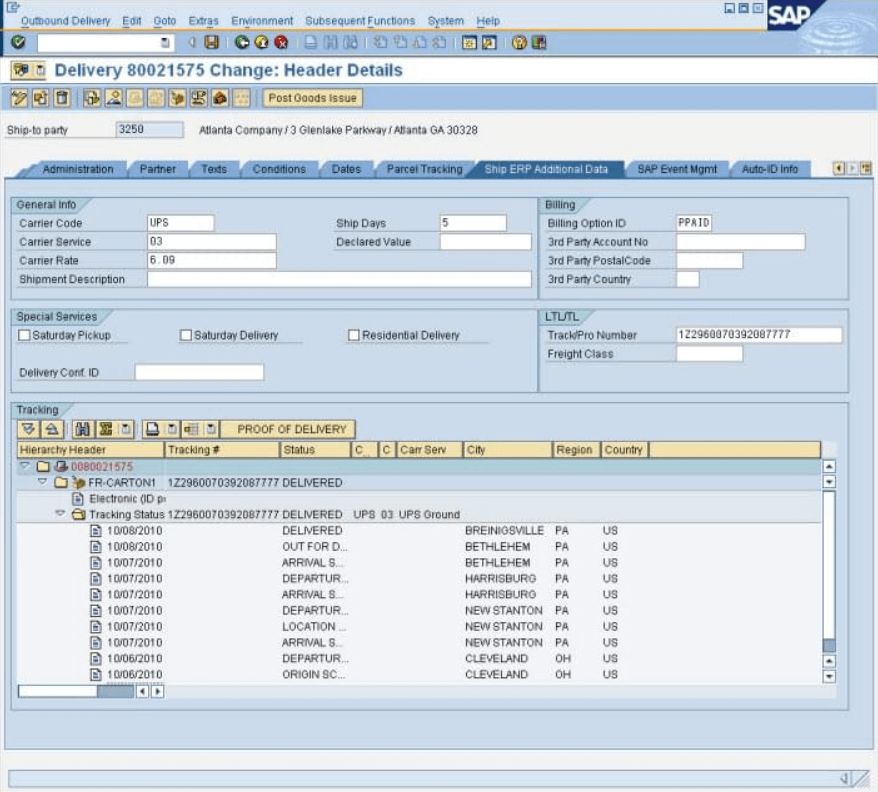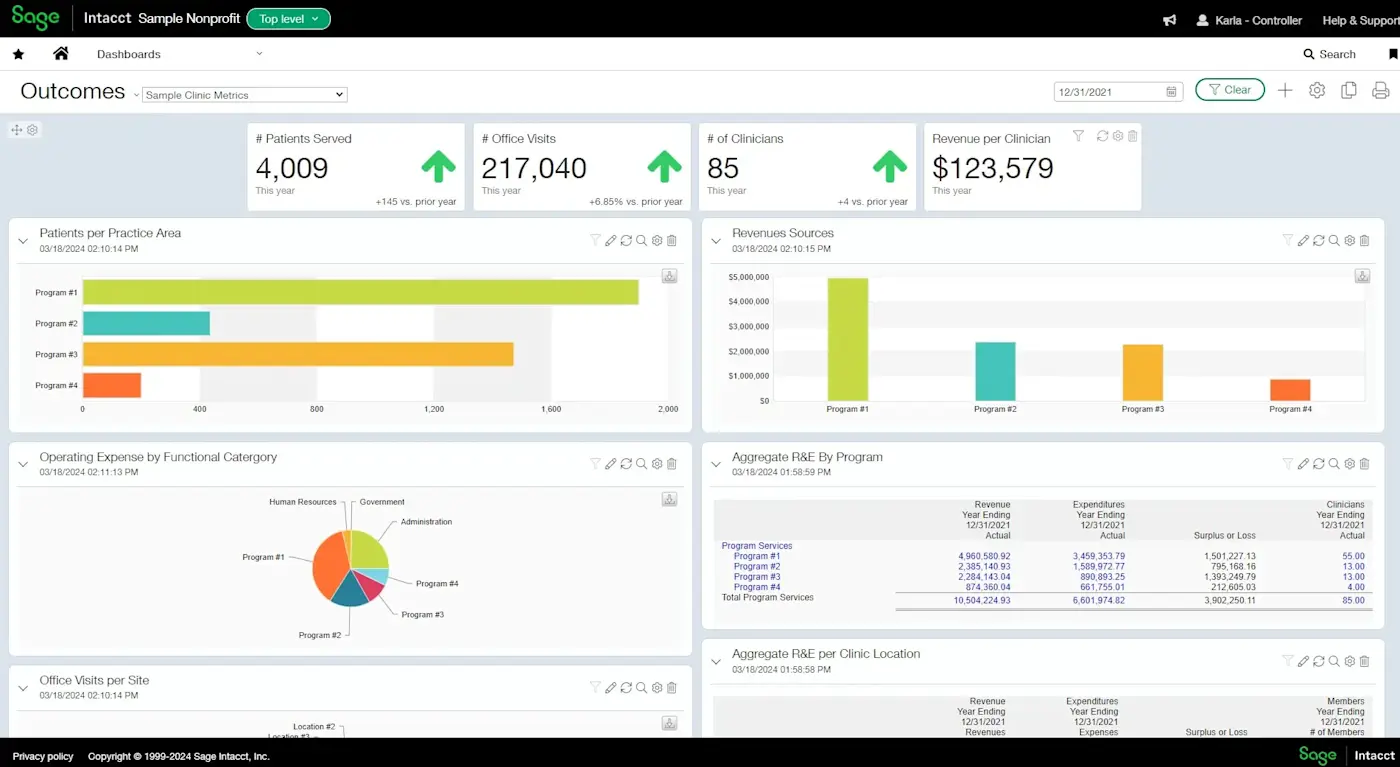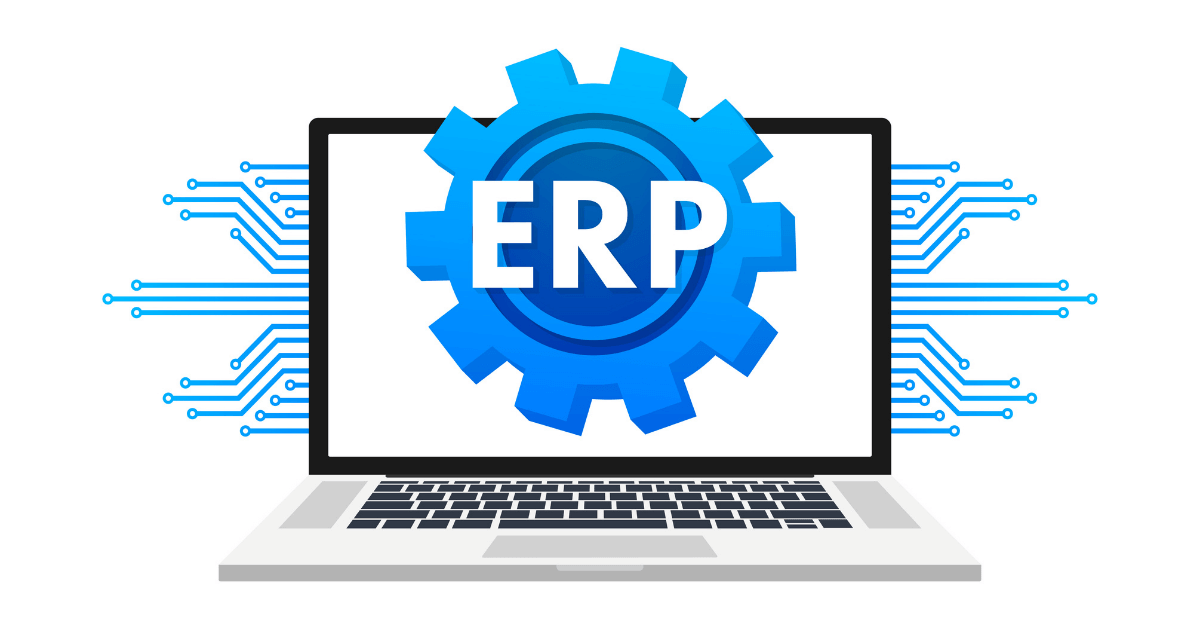
Imagine having a powerful tool at your fingertips that can streamline your business operations, enhance productivity, and boost your bottom line. That’s exactly what ERP software can do for you.
Whether you run a small startup or a large corporation, the right ERP system can transform the way you work, making processes smoother and more efficient. But with so many options out there, how do you know which one is right for you?
You’ll discover what ERP software is, why it’s crucial for your business, and how to choose the perfect solution tailored to your needs. Let's dive into the world of ERP software and unlock the potential for your business growth. Keep reading to find out how you can leverage this technology to gain a competitive edge.

Have you ever wondered how big companies keep track of all their operations seamlessly? Imagine managing inventory, finances, human resources, and customer relations all at once without losing your mind. That's where ERP software comes into play. ERP, or Enterprise Resource Planning, is a powerful tool designed to integrate and streamline various business processes. It acts as a single source of truth, bringing together different departments to work in harmony. But what exactly is ERP software, and how can it benefit your business?
ERP software is like the backbone of a business operation. It connects various functions within a company, such as accounting, procurement, project management, and manufacturing, into a unified system. This integration provides a holistic view of business activities, making it easier to spot inefficiencies and improve productivity.
Imagine running a company where information is scattered across multiple platforms. ERP software solves this issue by centralizing data. This means everyone—from the CEO to the intern—can access the same information, reducing errors and improving decision-making.
ERP systems work by collecting data from different departments and storing it in a central database. This database acts as a hub where all information is processed and shared. Think of it as a digital filing cabinet where everyone can access what they need, when they need it.
For example, when a sale is made, ERP software automatically updates inventory levels and generates financial reports. This real-time data exchange ensures that all parts of the business are synchronized, making operations smoother and more efficient.
ERP software is crucial because it helps businesses run smoothly. By streamlining processes, it reduces the time spent on manual tasks, freeing up resources for more strategic activities. This efficiency can lead to significant cost savings over time.
Moreover, ERP systems provide valuable insights through analytics. They allow you to track performance metrics, forecast trends, and make informed decisions. Imagine knowing exactly where your business stands at any given moment—ERP software makes that possible.
ERP software isn't just for large corporations. Even small and medium-sized businesses can gain a lot from using it. If you find yourself juggling multiple tasks and losing track of important details, ERP software might be the solution.
Imagine you’re running a growing business. As you expand, keeping track of everything becomes challenging. ERP software can help you manage this growth by providing structure and organization, ensuring you stay on top of your game.
Before investing in ERP software, consider your business needs. Do you need more control over inventory? Are you looking for better financial reporting? Knowing your priorities will help you choose the right system.
Ask yourself: How adaptable is the software? Can it grow with your business? Is it user-friendly? These questions are crucial in ensuring you pick a tool that aligns with your goals and improves your operations.
ERP software is a game-changer for businesses looking to streamline operations and improve efficiency. By understanding its benefits and functionality, you can make a more informed decision for your business needs. Could ERP software be the missing piece in your business puzzle?
ERP systems are like the central nervous system for businesses, connecting various functions into a unified platform. They streamline operations, boost efficiency, and provide critical insights. Let's delve into the key features that make ERP systems indispensable for modern enterprises.
One of the standout features of ERP systems is their ability to integrate various departments seamlessly. Whether it's finance, human resources, or supply chain, an ERP system ensures everyone works from the same playbook. Imagine the chaos of a business where sales and inventory departments operate in silos. With ERP, you can eliminate these silos, leading to better communication and collaboration.
Have you ever struggled with data discrepancies between departments? ERP systems tackle this by providing a single source of truth. This integration ensures that your business operations are smooth and efficient, reducing the risk of errors that come from manual data entry and separate systems.
Timely information is critical in making informed decisions. ERP systems offer real-time data access, meaning you can view your business operations as they happen. You no longer need to wait for end-of-day reports to understand your sales numbers or inventory levels.
Consider the competitive edge you gain when you can react instantly to market changes. Real-time data access allows you to make agile decisions, enhancing your ability to meet customer demands swiftly. How often have you wished for up-to-the-minute reports? With ERP, that wish is a reality.
Manual processes are not only time-consuming but also prone to errors. ERP systems automate routine tasks, freeing up your team to focus on what truly matters. Think of the countless hours saved when invoice processing, payroll, and inventory management run automatically.
Automation minimizes human error and increases efficiency. Have you ever calculated the cost of mistakes due to manual data entry? With automated processes, ERP systems reduce these costly errors, ensuring accuracy and consistency across your operations. This not only saves time but also boosts your team's productivity.
ERP systems empower your business with these key features, driving efficiency and strategic growth. What could your team achieve with these tools at their disposal?

ERP software stands for Enterprise Resource Planning software. It helps businesses manage various processes. Implementing ERP can bring many benefits. These benefits improve operations and decision-making. Learn how ERP software can enhance your business.
ERP software streamlines processes. It integrates different functions into one system. This reduces manual tasks. Employees can focus on more important work. Automation speeds up tasks. It reduces errors. Companies can serve customers faster. Efficiency boosts overall productivity.
ERP software helps reduce costs. It minimizes waste and errors. Businesses can save money on operations. Real-time data helps control spending. It avoids unnecessary expenses. Inventory management is more accurate. This ensures optimal stock levels. Companies can avoid overstocking or stockouts.
ERP software provides valuable insights. It offers data analysis tools. Managers can access real-time information. This helps in making informed decisions. Better decisions lead to business growth. ERP centralizes data from all departments. This gives a complete view of the business. It aids strategic planning and forecasting.

Selecting an ERP software involves considering the company's needs and budget. Focus on scalability to support future growth. Ensure user-friendly features for easy implementation and daily use.
Choosing the right ERP (Enterprise Resource Planning) solution can be a game-changer for your business. It’s not just about software; it’s about selecting a tool that aligns with your growth trajectory and operational goals. Have you ever thought about what happens if you pick the wrong one? The ripple effect can be daunting, affecting everything from productivity to customer satisfaction. Let's dive into what you need to consider to make the best choice for your business.
Understanding your business needs is your first step. Start by listing your core processes and identifying any inefficiencies. Consider whether your current software supports your team's workflow. Imagine attending a meeting where everyone is frustrated with data discrepancies or manual tasks. This is a sign that your business might need a more integrated solution. Prioritize needs that align with your long-term strategy.
Is your business growing? Then you need an ERP solution that grows with you. Scalability ensures that your software can handle increased demand without a hitch. Flexibility is equally crucial. Can the ERP adapt to changes in your business processes? It should, without requiring major overhauls. Look for solutions that offer modular features, allowing you to expand functionalities as needed.
Picture this: You’ve invested in a new ERP system, and now you need help setting it up. Who are you going to call? This is where vendor reputation comes into play. Research vendors with a proven track record of success. Check reviews and case studies. A reliable vendor offers robust support and training, ensuring your team can use the system effectively. Wouldn't you prefer a partner who stands by you through thick and thin? By focusing on these key areas, you can choose an ERP solution that not only meets your current needs but also adapts to future challenges. Are you ready to make a decision that could transform your business operations?
Implementing ERP software presents several challenges for businesses. Understanding these challenges helps in planning a smoother transition. It's crucial to address these issues early to ensure a successful implementation.
ERP systems often require a significant upfront investment. This includes software licenses and hardware upgrades. Small businesses might struggle with these financial demands. Budgeting is essential to prevent unexpected expenses. Prioritize long-term benefits over immediate costs.
Employees need training to use new ERP systems effectively. Training sessions can be time-consuming. Some employees may resist learning new systems. Simplifying training materials can ease this transition. Engaging training sessions enhance understanding and acceptance.
Implementing ERP involves changing existing processes. Change can lead to resistance among staff. Clear communication helps in managing this change. Highlight the benefits of the new system to gain support. Supportive leadership fosters a positive change culture.
ERP software is evolving with AI and cloud integration leading the way. Businesses gain efficiency through automation and data-driven insights. Enhanced mobile access and user-friendly interfaces increase adoption across diverse industries.
The world of ERP (Enterprise Resource Planning) software is evolving rapidly, and businesses must keep pace with these changes to stay competitive. As technology advances, new trends are emerging that promise to transform how companies manage their operations. Understanding these future trends in ERP can help you make informed decisions that align with your business goals.
Cloud-based ERP solutions are gaining traction due to their flexibility and cost-effectiveness. Unlike traditional ERP systems, cloud-based options allow you to access your data from anywhere, at any time. This means your team can work remotely, which is increasingly important in today's digital age. Updating your system is seamless with cloud-based ERP. You don't need to worry about complex installations or downtime. Your service provider handles updates, ensuring you always have the latest features and security patches. Is your business ready for this shift? Consider the scalability benefits. As your company grows, a cloud-based ERP can easily accommodate increased data and user demands without significant infrastructure changes.
Artificial intelligence is making its way into ERP systems, bringing automation and predictive analytics to the forefront. Imagine having your ERP system automatically generate reports or predict inventory needs based on historical data. AI can do just that, saving you time and reducing human error. AI integration in ERP also enhances decision-making. By analyzing patterns and trends, AI can provide insights that might be overlooked by the human eye. This leads to more informed strategies and better business outcomes. Think about how AI could transform your workflow. Are there repetitive tasks that consume valuable resources? Automating these tasks with AI could free up your team for more strategic initiatives.
The rise of mobile technology has led to the development of mobile ERP applications, allowing you to manage your business on the go. With a mobile ERP app, you can approve requests, access key metrics, and even communicate with your team, all from your smartphone or tablet. This mobility offers unparalleled convenience. Picture yourself reviewing sales data while waiting for a flight or approving purchase orders during a lunch break. Mobile ERP puts the power of your business in your pocket. Is your workforce increasingly mobile? Implementing a mobile ERP solution ensures that your team has the tools they need to stay productive, regardless of their location. This can lead to improved efficiency and faster response times. These future trends in ERP are reshaping the landscape of business management. By embracing these innovations, you can enhance your operations, improve decision-making, and stay ahead in a competitive market. Are you ready to take the leap into the future of ERP?
ERP software transforms businesses by streamlining processes and improving efficiency. Case studies reveal how companies successfully adopted ERP systems, enhancing productivity and reducing costs. Discover real-world examples where ERP software made a significant impact, driving growth and optimizing operations in diverse industries.
Implementing ERP software can be a game-changer for businesses. But how can you be sure it's right for your company? Real-world success stories provide valuable insights. By examining how others have effectively adopted ERP systems, you can learn what works and apply those lessons to your own business strategy.
Even small businesses can benefit significantly from ERP systems. Take, for example, a local bakery that struggled with inventory management. They adopted an ERP solution to streamline their ordering process. With real-time data on ingredient availability, they reduced waste by 30%. This not only saved money but also improved their service to customers. Another example is a family-run plumbing business. Before ERP, they faced scheduling conflicts and billing errors. By implementing a basic ERP system, they synchronized job schedules and automated invoicing. This led to a 25% increase in customer satisfaction. What challenges does your small business face that an ERP system might solve?
Large enterprises often face complex challenges that require robust solutions. A notable case is that of a global electronics company. They struggled with disparate systems across regions, leading to inefficiencies. By adopting an integrated ERP platform, they achieved uniformity in operations. This reduced operational costs by 15% and improved global collaboration. Another example is a leading automotive manufacturer. Their existing system couldn't keep pace with demand fluctuations. Implementing a scalable ERP solution allowed them to respond to market changes swiftly. They reduced production lead times by 20%, boosting overall competitiveness. Can your enterprise afford not to leverage the power of ERP in today's fast-paced market? Real-world examples provide a roadmap for success. Whether you're a small business or a large enterprise, ERP can offer tailored solutions to fit your needs. Consider how these stories might inspire changes in your own organization.

ERP software integrates core business processes, enhancing efficiency and data accuracy. It manages operations like finance, HR, and supply chain. Businesses use it to streamline workflows, improve productivity, and gain real-time insights. ERP systems support informed decision-making and help organizations adapt to changing market demands.
ERP software centralizes data, reducing redundancy and enhancing accuracy. It automates routine tasks, saving time and reducing errors. Integrated processes allow seamless communication across departments. This improved efficiency leads to faster decision-making, better resource management, and reduced operational costs, ultimately boosting business performance.
Yes, ERP software is scalable and can fit small business needs. It offers modules for finance, inventory, and HR management. Small businesses benefit from improved efficiency and data insights. Cloud-based ERP solutions are cost-effective, providing flexibility and easy implementation without significant upfront investment.
ERP systems enhance data security through centralized control and access management. They implement robust encryption and regular security updates. User permissions ensure data protection and restrict unauthorized access. With audit trails, businesses can monitor data changes and ensure compliance with regulations, safeguarding sensitive information.
ERP software helps businesses streamline operations and improve productivity. It centralizes data, making access simple and efficient. Users experience better decision-making with real-time insights. Cost savings come from reduced errors and improved processes. Choosing the right ERP system requires careful evaluation of needs.
Consider your business size and goals. Look for features that align with your operations. Proper training is crucial for successful implementation. Support and updates ensure the software remains effective. ERP software is a valuable tool for growth and efficiency. With careful planning, it can transform how businesses operate daily.